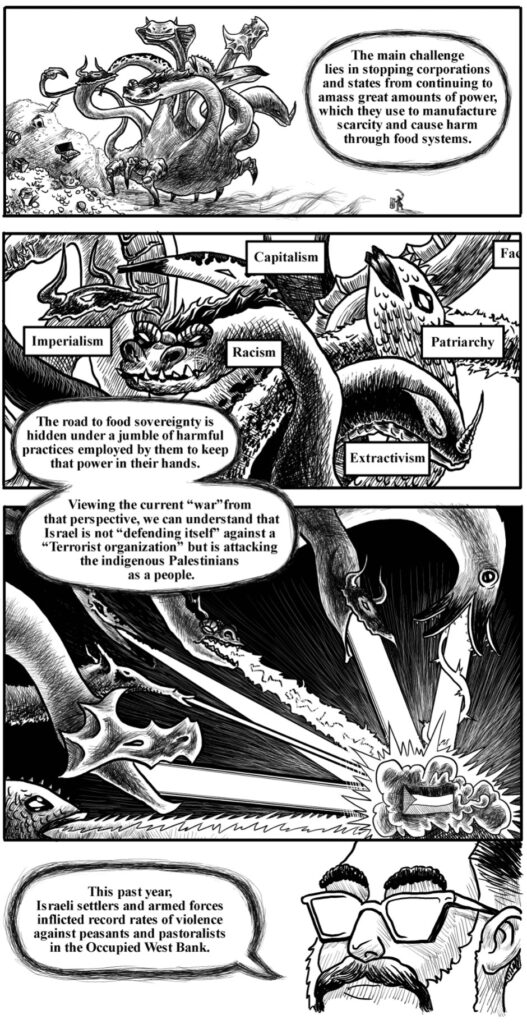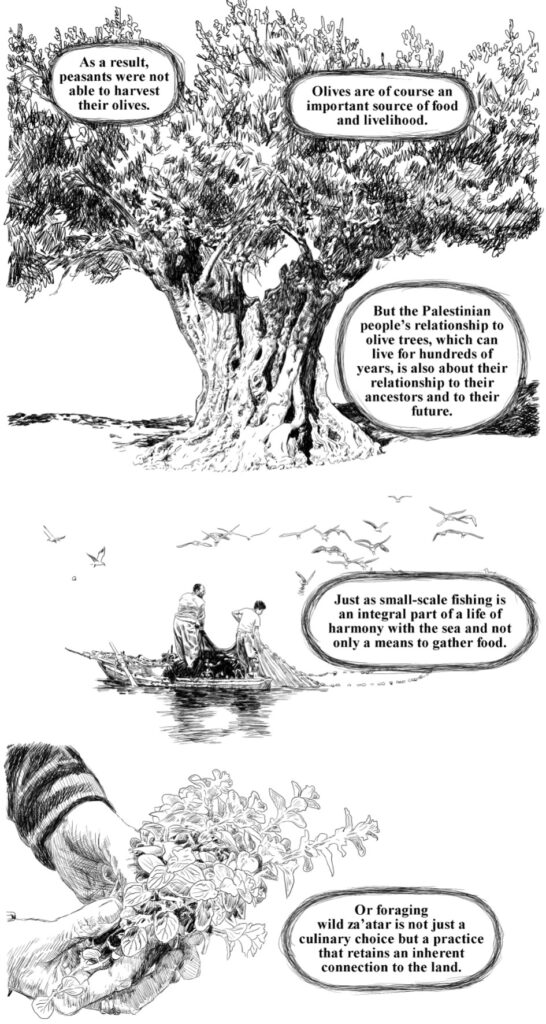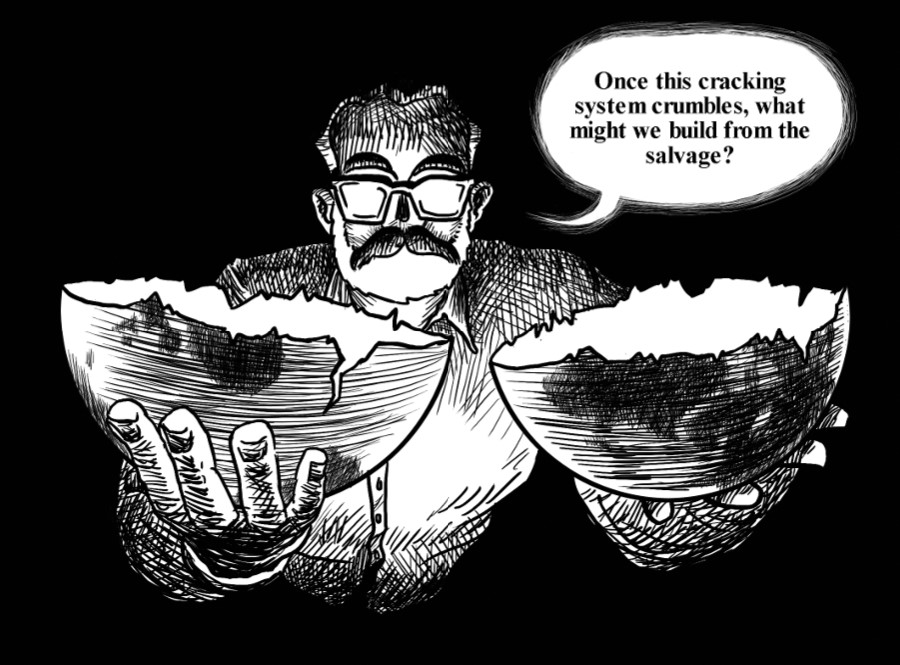-
Report of the Special Rapporteur on the right to food, Michael Fakhri

Disclaimer: In this essay, we aim to highlight the significant and exemplary work of the UN Special Rapporteur on the Right to Food, Michael Fakhri. The report was published in July 2024 and scheduled for presentation at the UN General Assembly in New York on October 18, 2024. The authors have been granted permission to use quotes and images from the report, which serves as the sole source for this essay. However, this essay is to be strictly distinguished from the work of the UN Mandate on the Right to Food. It is an opinion-piece written by students with the aim of emphasizing this pertinent report and making it accessible to a bigger audience.
You can find the full report here.
For over a year, the world has been witnessing the genocide of Gaza’s population unfold before their eyes, primarily through their phones. Never before has a population been driven to starvation at such a rapid pace. The Israeli starvation campaign began on October 9, 2023. However, to comprehend how famine could develop so rapidly within a population of 2.3 million, one must first understand the years of systematic control and blockade imposed on Gaza by Israeli authorities prior to October 9. As Michael Fakhri explains, famine is frequently portrayed in the international system as a humanitarian crisis, though this framing fails to adequately explain how it can be addressed or prevented. Instead of using the term humanitarian crisis, he advocates for understanding starvation as a weapon of war and therefore a crime and subject to international criminal law. He states that “starvation is political, international, structural, and long-lasting; it is always intentional through acts or omissions”. For the first time in history, the ICC plans to charge the perpetrators with the crime of starvation, having requested an arrest warrant against Israeli officials including Prime Minister Benjamin Netanyahu.
For decades, Gaza’s food system has been systematically dismantled. Since 2014, through frequent bombardments, the leveling and clearance of agricultural land, and the repeated aerial spraying of herbicides and other chemicals, Israel has rendered vast areas of Gaza’s farmland infertile. Through the deprivation of fertile land and access to clean drinking water, more than half of the population in Gaza was already food insecure prior to October 9. In Section D, the report emphasizes the use of starvation as a tactic of genocide, extermination and torture. Starvation is used as a tool to inflict unlivable conditions for a group, making it a key element in understanding the genocidal intent of the Israeli government. The report clearly states that “Israel’s starvation campaign fulfilled the actus reus and mens rea of the Convention on the Prevention and Punishment of the Crime of Genocide and thereby triggered all States’ obligation to prevent genocide”. Unfortunately, in many cases of blockades or sieges, the inhumane tactic of starvation is increasingly employed as part of the assault. However, as previously mentioned, due to the decade-long occupation and blockade of the Gaza Strip, this famine is unprecedented in both its scale and speed. By December, the entire population of Gaza was suffering from hunger, and famine had spread across the region.The horrors of the situation cannot be fully captured in a standard UN report through words alone. Therefore, in collaboration with Lebanese artist Omar Khouri, the UN Special Rapporteur has created a short comic series depicting three powerful examples of what the starvation campaign in Gaza feels like for Palestinians.
On Friday, October 18, Michael Fakhri will present this report at the United Nations Headquarters in New York starting at 14:00, urging the General Assembly to recognize:
- Every instance of mass starvation is a form of genocide or extermination, and every instance of starving an individual is torture;
- The right to be free from hunger means the right to be free from oppression, exploitation and occupation;
- The Palestinian people’s right to return to Palestine is a precondition to fulfil their right to food and food sovereignty;
- Israel has engaged in an intentional starvation campaign against the Palestinian people which evidences genocide and extermination.
Graphic reports
You can find all three graphic reports here.
Gaza Fishers
The graphic report “Gaza Fishers” offers a compelling visual account of the challenges faced by Gaza’s fishing community, focusing on the testimony of Zakaria Fadel Hasan Baker, an activist deeply involved in Gaza’s fishing sector. The drawings highlight the central role the sea plays in the lives of Gaza’s small-scale fishers, who, before October 2023, were a vital part of the coastal economy. It paints a powerful picture of how Gaza’s fishing sector, once thriving, has been systematically dismantled as part of the Israeli strategy to erode Palestinian food sovereignty.




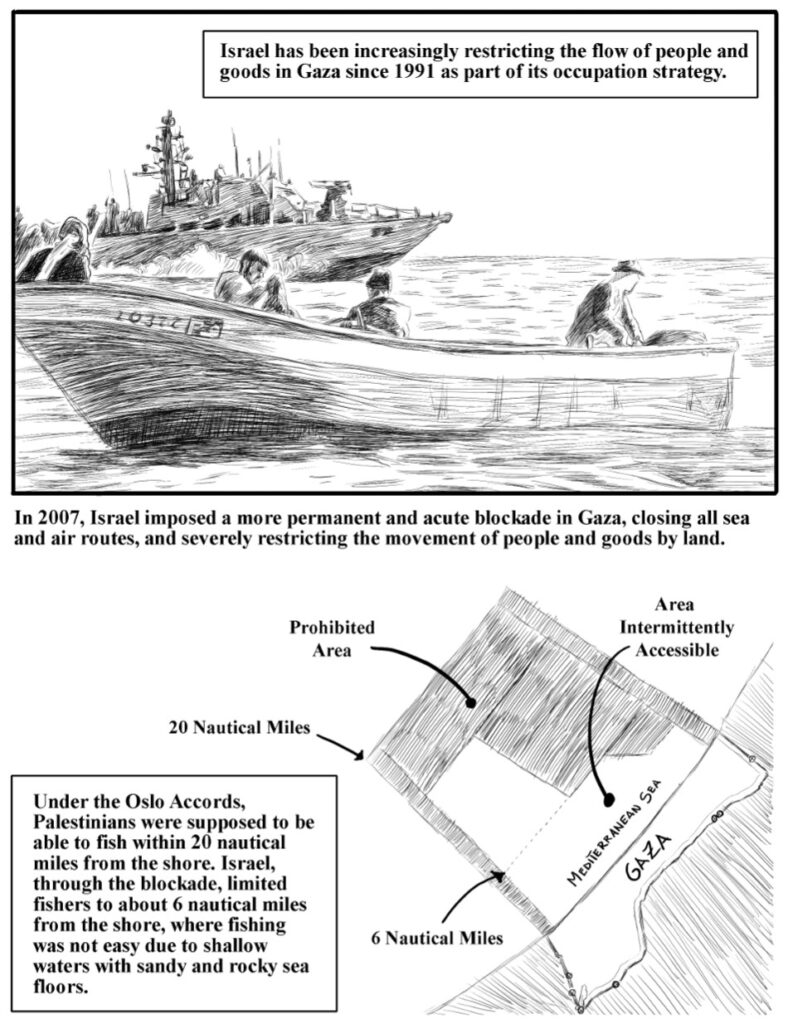

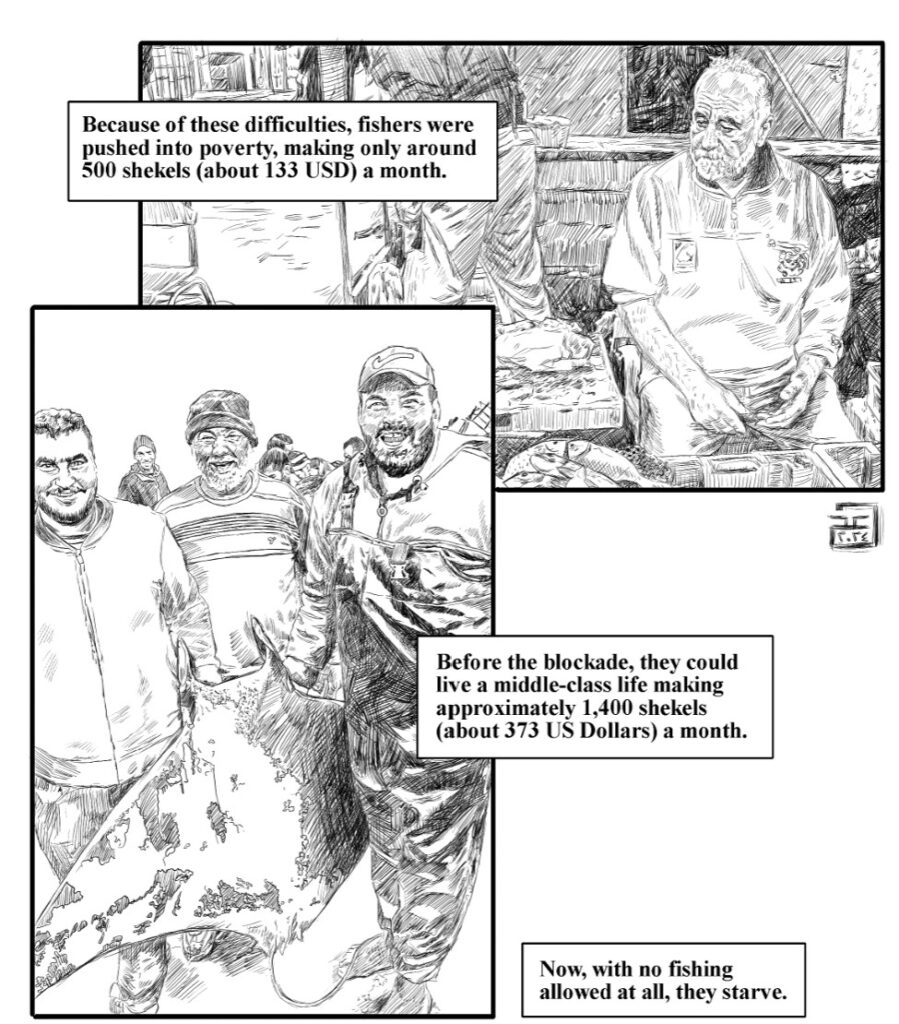

Palestinian People’s Food Sovereignty
These powerful illustratons highlight how international responses to Gaza are reshaping the foundations of international law, while a growing global solidarity movement stands with Palestinians for their right of self-determination. It portrays the devastating impact of Israel’s occupation, particularly through the destruction of vital food systems, and shows how the Palestinian relationship to land and resources is deeply tied to their cultural identity and survival. The report emphasizes that the fight for Palestinian food sovereignty is not just about ending hunger in Gaza — it is a universal struggle against corporate and state powers that exploit food systems worldwide.



